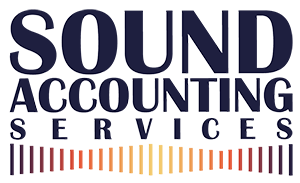From 6 April 2016 some directors and employees won’t be allowed to claim tax relief on certain business-related travel expenses. How might this new rule affect you and your company’s tax position?
Business travel expenses
If a director or employee spends money to travel on business for your company it can reimburse them tax and NI free. Alternatively, it can pay for the travel direct, e.g. a rail ticket, and this won’t trigger a tax or NI bill for the director or employee. However, there’s an important exception.
Commuting costs
The tax rules say that the cost of commuting to and from a permanent place of work, while business related, is not tax deductible. Therefore, reimbursements and payments in respect of this type of expense count as the income of directors and employees for tax and NI purposes. However, a change to the rules made by HMRC created a legitimate loophole which means some workers are allowed tax and NI-relief for commuting costs.
Temporary workplace loophole
Where you travel to and from a temporary place of work the loophole applies. For example, if you work for a customer at their premises for a prolonged period, that can be up to 24 months, your commuting costs are tax and NI free. However, HMRC now wants to limit the situations in which this applies.
Temporary counts as permanent
Rather than scrap the temporary workplace rule completely, which would cause some directors and employees to unfairly lose out, the rule has been changed so that from 6 April 2016 tax relief for commuting costs to a temporary workplace will not apply where:
- you provide services to a customer through an intermediary, i.e. your own company or partnership, or a work agency
- the terms of the job would make you an employee of your customer if you worked for them direct.
Essentially, this means that where the IR35 or work agency rules (also called the intermediary rules) apply to income your company or partnership receives, your commuting costs relating to that work are not tax and NI free (see The next step ).
Example. Bill runs a consultancy through his own company, Acom Ltd. He currently has two six-month contracts with different customers to provide his services. Both involve working at the customer’s premises the whole time he’s doing the work. One of his customers requires Bill to attend the office at set times and controls the work Bill does, while the other leaves the timing and control of the work up to Bill. If Acom pays for all Bill’s commuting costs, those related to the first job will be liable to tax and NI like salary while those for the second will not.
Tip 1. If you’re sure the IR35 rules don’t apply to your temporary contracts after 5 April 2016, you’re entitled to tax and NI-free commuting costs.
Tip 2. Where the IR35 or agency rules apply, the new tax and NI treatment of commuting costs can reduce the net income you receive for your work. Therefore, factor this in when working out how much to charge your customers.
Reproduced with the permission of Indicator – FL Memo Limited. For subscription information call 01233 653500;
